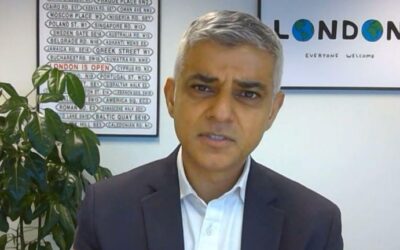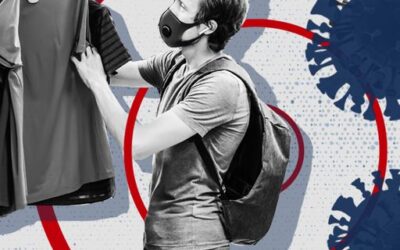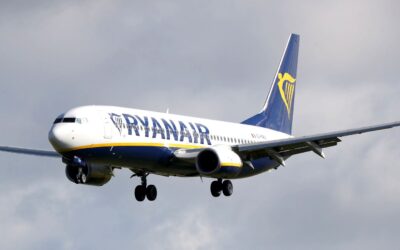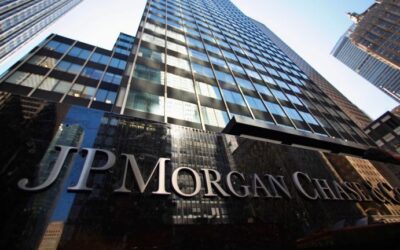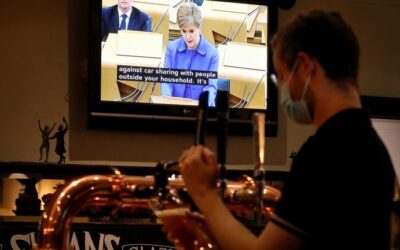A quarter of a million hospitality jobs are at risk from additional coronavirus restrictions imposed on London from this weekend, the mayor of London has been warned by an industry chief.
Sky News has seen a letter to Sadiq Khan from Kate Nicholls, chief executive of UKHospitality, in which she said that his request for the capital to be moved to a higher risk status would be “incredibly damaging without additional financial support and urge you to work with us to secure that is in place before any changes to London’s classification is made”.
Ms Nicholls’ letter was sent on Wednesday, 24 hours before the change was formally announced by the government, with new COVID-19 restrictions in London coming into force this weekend.
Image: Sadiq Khan is the mayor of London
Track the economy’s recovery from lockdown
Responding to the announcement, she called on ministers to remove employer contributions from the Job Support Scheme for hospitality “or apply tier 3 job support to tier 2 businesses”.
“If it does not, we are looking at catastrophic businesses closures and widespread job losses in the capital as early as 1 November,” she said.
Advertisement
In her letter to Mr Khan, the UKHospitality chief requested a package of financial support measures, including enabling hospitality businesses outside the most severe restrictions to be allowed to close voluntarily while still accessing emergency funding.
“With the announcement of the new tiered restrictions system, focused almost entirely on the hospitality sector, we have moved into a new phase of financial peril for our businesses, their employees, the capital’s tourism offer, and the social and cultural prospects for Londoners,” she wrote.
More from Covid-19
Where jobs have been lost in the UK
“The current restrictions – the 10pm curfew, the instruction to work from home and various other impositions on customers and staff – have combined to severely dampen trade, particularly in London. Across the UK, London has the lowest proportion of pubs, bars and restaurants open of any region – with one in six (16%) still closed.
She went on to warn: “Mass job losses – potentially up to 250,000 in London alone – will become unavoidable if more support is not forthcoming.”
The tightening of restrictions in London was given a cautious welcome by the lobbying group London First, whose chief executive, Jasmine Whitbread, said: “If tough action now means we can save lives and avoid a more severe lockdown later, then businesses in the capital will hope that these short-term measures will prevent worse to come.”

